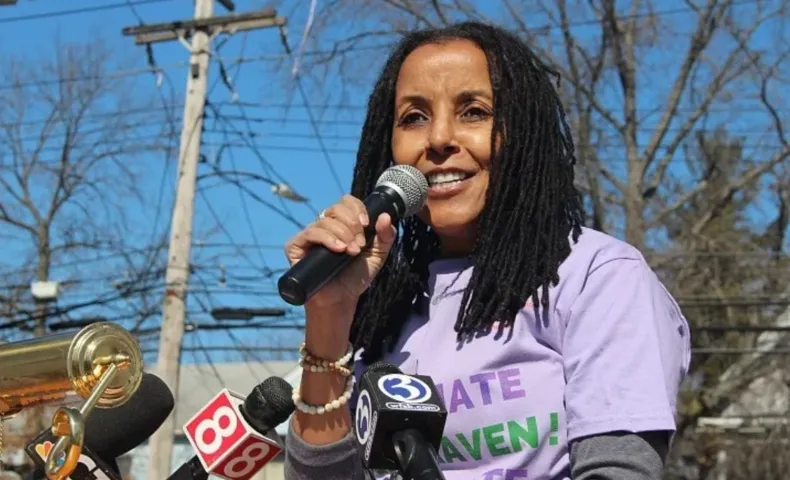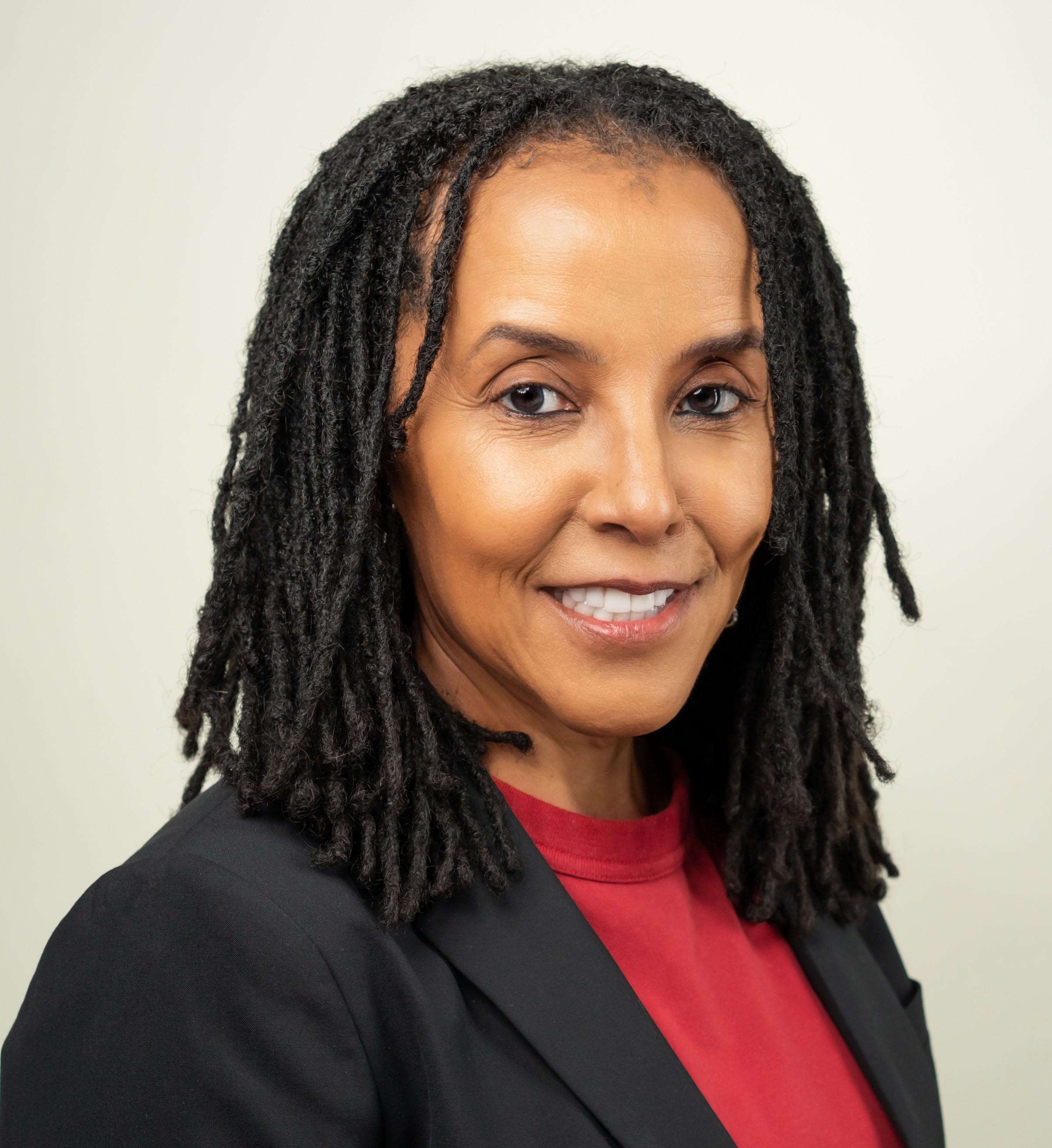 Photo Credit: Thomas Breen
Photo Credit: Thomas Breen
“Trust Us to Find a Way”
After growing up in Puerto Rico and living in Fiji, Trinidad and Tobago, and other places where her father was posted for the United Nations, Kica Matos ended up in New York City for graduate school. She said she was shocked by the racial disparities she saw in wealth and income, health, and the criminal justice system in New York and across the country.
Kica quickly committed herself to social justice work, spending the first 10 years of her career as an advocate and organizer against the death penalty. After graduating from law school and serving in various senior roles in government, philanthropy, and social justice nonprofits, she was selected to lead the National Immigration Law Center (NILC) in May 2023. A longtime Haas Jr. grant partner, NILC is a national leader in the work of advancing and protecting the rights of immigrants with low incomes.
and organizer against the death penalty. After graduating from law school and serving in various senior roles in government, philanthropy, and social justice nonprofits, she was selected to lead the National Immigration Law Center (NILC) in May 2023. A longtime Haas Jr. grant partner, NILC is a national leader in the work of advancing and protecting the rights of immigrants with low incomes.
Elica: How did you first connect with NILC?
Kica: I was working on federal immigration reform at Community Change in Washington about a decade ago, and there was a bill that passed the Senate and got stuck in the House. NILC was part of the coalition working with us on that campaign, and we were all trying to figure out how to get the bill through the House. So, we staged a massive civil disobedience event in D.C. and blocked several streets close to Congress.
A lot of us got arrested that day, and I ended up in a massive room in jail with Marielena Hincapié (former NILC president) and a lot of other leaders. They had taken away our phones, so all we could do was talk to each other, and I remember we had deep conversations about everything, from the personal to the political. And from that day forward, I had such profound respect for NILC.
Later, when I was working at the Vera Institute of Justice, NILC was hiring for an executive vice president. I applied and got the job, and then Marielena said she was stepping down and I guess it was kismet.
Elica: What is your vision for NILC and the immigrant rights movement?
Kica: In 2019, NILC adopted a strategy and vision for its work and it’s something that really resonated with me from the day I started here. It describes our work as a three-legged stool that includes policy and legal reforms, narrative change, and building power for immigrant communities. I hope my legacy here is that I did everything in my power to move our strategy and vision forward in cooperation with lots of great partners and in ways where we are always guided by the leadership of immigrant communities.
Elica: What does it look like to work in partnership with impacted communities?
Kica: I recently had the chance to visit the U.S. border on a trip organized by Haitian Bridge Alliance. The trip was created to help a group of immigrant rights and human rights groups understand the experiences of Black migrants coming to the US. When we went to the encampments on the border to see how people were living, we saw some of the most horrific conditions I have ever seen. But the level of dignity and hope I saw was so inspiring. There was a powerful sense of community among all these people who were thrown together in the most challenging time of their lives.
One person I met on that trip whom I will never forget was Alicia. She was from Venezuela and was a real community leader—welcoming others to the encampment when they arrived, providing an orientation, and showing incredible love and kindness to her community. And she did all of this at a time of incredible trauma for her. She had left two growing children in Venezuela, she had been on a long and traumatic journey where her bus was pulled over and hijacked. And still she had this resiliency and this determination about her.
It is people like Alicia that give me hope. We need to be guided by their stories, their voices, and their determination to find a better life.
Elica: What is your message to funders in this moment?
Kica: The people in the immigrant rights movement have faced huge stress and uncertainty and burnout over the last few years. When Marielena was here, I was always impressed by how intentional NILC was on issues of self-care in the workplace. And that is still a commitment for us. We have to support the mental health of the people across this movement because this is not easy work, and these are not easy times.
And for the new leaders coming into this space, I hope funders will give us all a bit of grace. We need to find our feet and establish ourselves and learn to work together. Trust us to find a way to move forward together.